No one should complain that My Country; a work in progress is a grim night out. It’s rare for a good play to be written by royal command. The co-authors are the Queen’s personal minstrel, Carol Ann Duffy, and the director of her Royal National Theatre, Rufus Norris. These inspiring artistes have sent their vassals beyond the security of London to annotate ‘the words of people across the UK’ in the hope of understanding a humanitarian disaster: Brexit. The show makes its prejudices clear by dedicating the script to a Remain voter, Jo Cox, who was murdered by a Leave supporter. And it promotes the view, common among Remainers, that Brexit is a crisis caused by thick proles.
Seven actors represent various parts of Britain and they recite random thoughts about stuff: migrants, bananas, mosques, black flags, benefits, pyjamas, sheep farming, taxis, disbanded football clubs, Brussels, cornflakes, House of Commons whisky, and so on. Then it changes from reportage to drama and each region boastfully competes with the others to assert its pre-eminence in sport, leadership, dancing, and so on. It’s a colossal muddle that barely meets the level of classroom intelligibility. Fact and fiction are confused constantly, and no indication is given that a switch has been made. Even within the passages of real-life statements it’s unclear who is speaking. An early chunk delivered by a youngish man representing ‘South West’ (but speaking in a northern accent) turns out to be the testimony of a teacher who is elderly and female. The script’s narrator plays seven roles, five male, two female. Her male roles are all factual. Of her female roles, one is factual the other fictional. Quite a hotchpotch. She wears a black trouser suit throughout but when she assumes her make-believe persona, Britannia, she wears a silly hat and spouts the sort of weightless, ornamental rhetoric that would give a true poet a coronary. ‘I have loved you all for ever, you children of these changing, feisty, funny, generous islands.’ No one wants to be called ‘feisty’. That’s what a rapist says when his victim fights back.
The omissions of the show are revealing. Virtually every statement made by ‘the people across the UK’ has been chosen for its impulsiveness and eccentricity. The political and economic arguments are never made. No voice is given to Cornwall, north Wales, Manchester, Liverpool, Yorkshire, the Home Counties or East Anglia. Overlooking the whole of the south-east saves Londoners like me from having our guilty secret broadcast: mass migration means cheap servants. When the result is announced on stage a great BONG from Big Ben resounds like a death knell. The lights darken ominously and the air seethes with the shudderings of the clueless and the foul-mouthed. ‘Gobsmacked, full of fear, horrendous, absolutely gobsmacked, could not believe it, shit went wrong, gobsmacked and frightened, horrendous, the sky is falling.’ Even one of the Leave voters calls the result ‘horrendous’.
The show is due to tour the regions, where I imagine it will cause some puzzlement. It portrays Britain, beyond the M25, as a sprawl of semi-civilised hill stations populated by barbarians seated around their campfires grunting at random nuisances and all too willing to let their frustrations coalesce into a campaign of xenophobic aggression. Elitists such as Richard Dawkins, who popped up on Newsnight recently to call Leave voters ‘ignorant’ and ‘misled’, will love it. They’ll believe it too. That’s the unsung tragedy of propaganda. The only people who give it credit are its creators.
Awards are certain for Who’s Afraid of Virginia Woolf?. Edward Albee’s best play has a brilliant set-up. Martha is a pampered soak whose father founded the college where her husband, George, is failing at the history faculty. During a night of stupendous boozing, Martha seduces a younger lecturer in order to humiliate George. But he’s a streetfighter with a steely wit who relishes Martha’s aggression because he needs to tangle to feel alive. They both do.
The script expects, and rewards, high-minded audiences. When Martha says ‘abstruse’, George corrects her to ‘abstract’ only for the correction to come boomeranging back. ‘Abstruse! In the sense of recondite.’ It’s a treat to hear language handled with such delicious precision.
Superb performances all round. Conleth Hill’s cuddly figure creates an unexpected contrast with George’s dextrous sarcasm. Imelda Staunton plays Martha like a nest of vipers forced into a skirt and cardigan but her sadistic one-liners are delivered with a disturbing sense of erotic merriment.
A word of warning. This is not a fun night out. Bitter misanthropes like me will rate it a highlight of the year but in the interval I heard viewers complaining that it was nothing but a barrage of spite. True, in a way. But spite is a human frailty rarely elevated to such sublime heights.
Got something to add? Join the discussion and comment below.
Get 10 issues for just $10
Subscribe to The Spectator Australia today for the next 10 magazine issues, plus full online access, for just $10.
You might disagree with half of it, but you’ll enjoy reading all of it. Try your first month for free, then just $2 a week for the remainder of your first year.

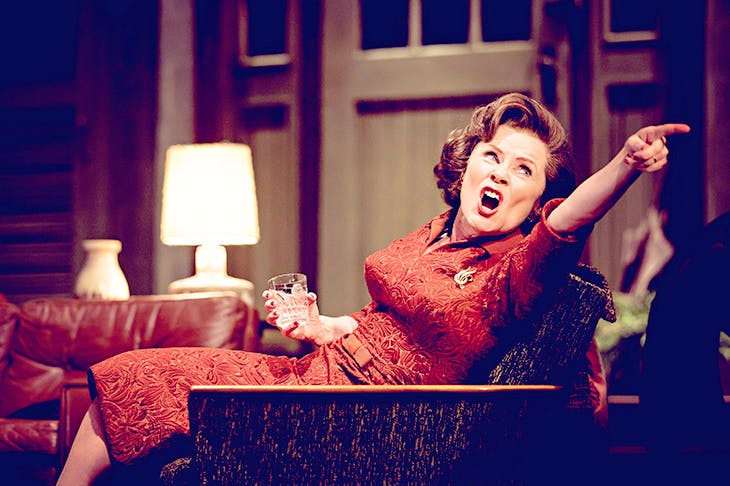


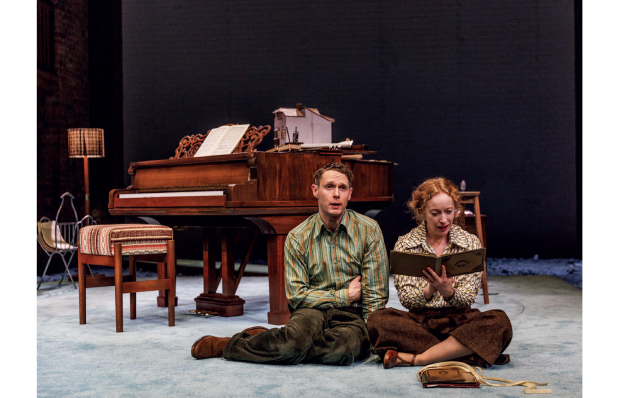
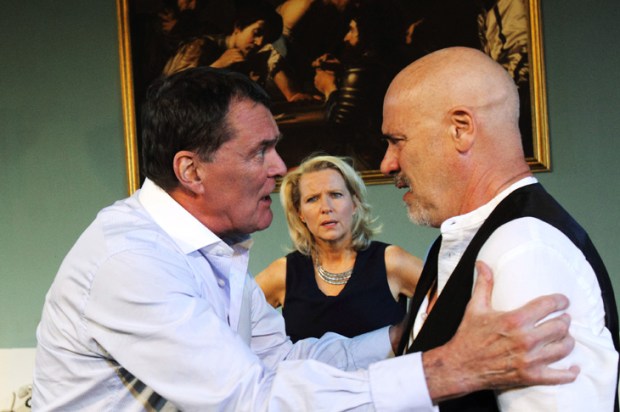
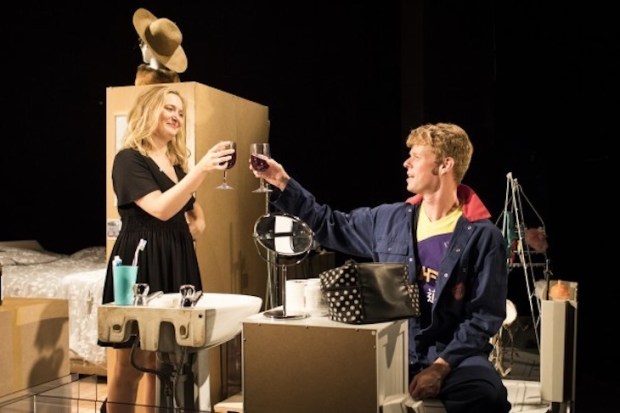
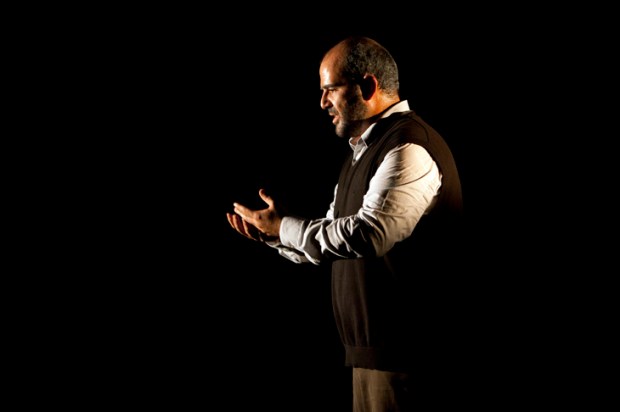






Comments
Don't miss out
Join the conversation with other Spectator Australia readers. Subscribe to leave a comment.
SUBSCRIBEAlready a subscriber? Log in